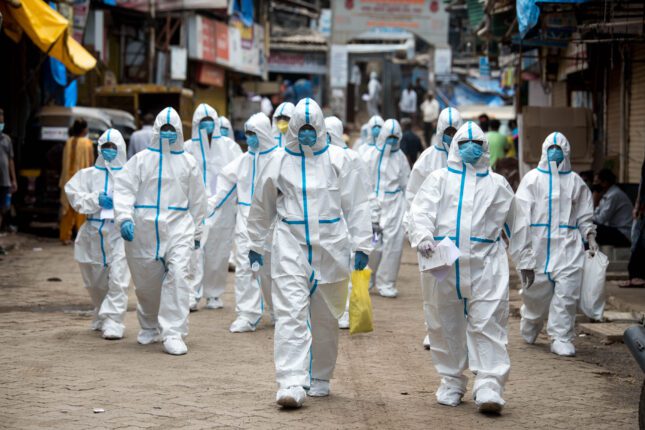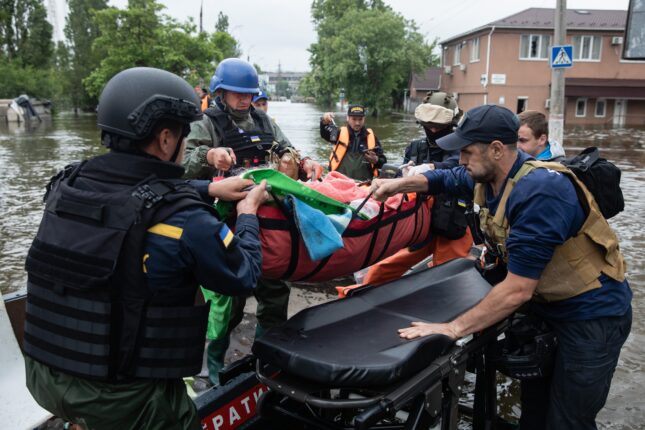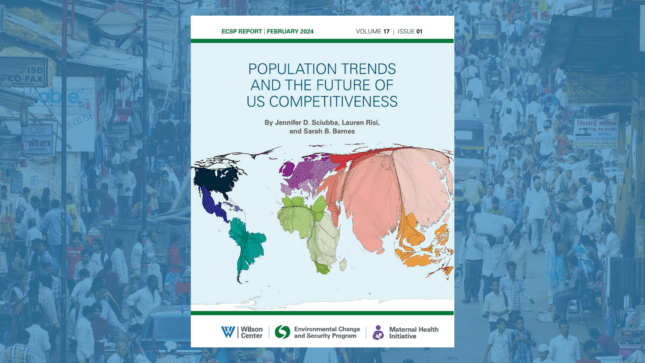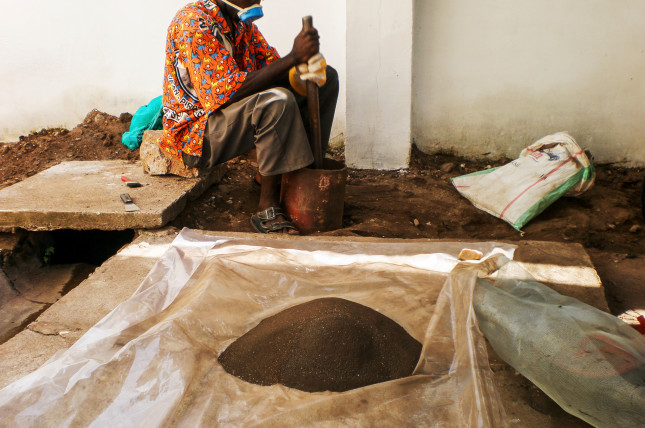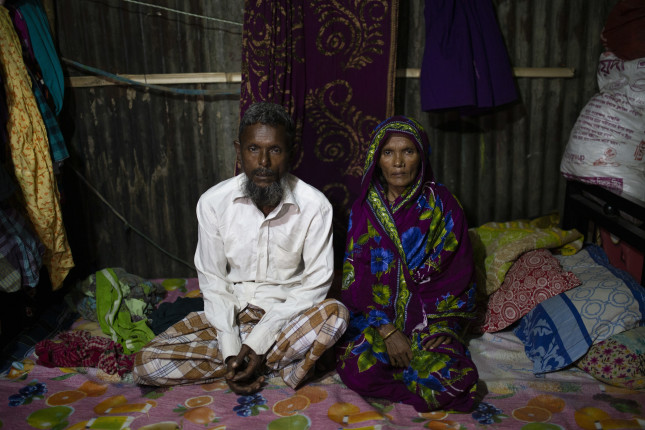
Lauren Herzer Risi
Lauren Herzer Risi is the Managing Editor for New Security Beat and director of the Stimson Center's Environmental Security Program, where she leads research and programming focused on the intersection of environmental change, climate change, demographic trends, conflict and peacebuilding, and foreign policy, international development, and security. She is the former director of the Wilson Center's Environmental Change & Security program.
Lauren previously worked as a Peace Corps volunteer in Bulgaria and served as a Crisis Corps volunteer with the Peace Corps and FEMA in New Orleans following Hurricane Katrina. She has a BA in History from UCLA and a Master’s degree in Environmental Security and Peace from the University for Peace in Costa Rica.
Email: lrisi@stimson.org
-
The Global Energy Transition Is About Securing the Future, Not Managing Decline
›November 5, 2025 // By Lauren Herzer RisiThe global energy transition is often framed as a balancing act between climate commitments on one hand, and sufficient energy and economic security on the other. That framing assumes the transition will mean less: less energy, less growth, and a steady decline in fossil fuel use. But this rhetoric is, as Ambassador Anthony Agotha put it at last month’s Berlin Climate Security Conference a “false choice.”
-
New Security Beat Finds a New Home
›July 8, 2025 // By Lauren Herzer Risi
In the wake of last week’s devastating floods in Central Texas, and with the 20th anniversary of Hurricane Katrina on the horizon, new data underscores a sobering trend: extreme weather events are becoming even more intense, more severe, and more frequent. At the same time, the very institutions and experts responsible for predicting and preparing for these rising threats are under threat themselves.
The Trump administration has significantly reduced or eliminated programs — like my former home, the Environmental Change and Security Program (ECSP) at the Wilson Center — that worked to address and communicate the climate challenges we face. Today, however, I’m pleased to announce that ECSP’s work, including the New Security Beat, has found a new home.
-
An Interview with NATO’s Paul Rushton on the Alliance’s Climate Security Efforts
› When senior officials from 32 countries meet in Washington, DC next week for the NATO Summit, deterrence and defense, as well as Ukraine and global partnerships, are at the top of the agenda. As NATO Secretary General Jens Stoltenberg observed at a recent Wilson Center event: “The war in Ukraine demonstrates that our security is not regional, it is global – not least because of the support we know Russia is getting from China and others.”
When senior officials from 32 countries meet in Washington, DC next week for the NATO Summit, deterrence and defense, as well as Ukraine and global partnerships, are at the top of the agenda. As NATO Secretary General Jens Stoltenberg observed at a recent Wilson Center event: “The war in Ukraine demonstrates that our security is not regional, it is global – not least because of the support we know Russia is getting from China and others.”Under Stoltenberg’s leadership, NATO has recognized that climate change is also reshaping the security landscape. In 2021, NATO launched a Climate Change and Security Action Plan which positions the organization as a leader in understanding and adapting to climate impacts on security. Two years later, the NATO Climate Change and Security Centre of Excellence (CCASCOE) was established in Montreal.
-
Climate, Conflict, and Changing Demographics Command Attention in New Global Health Security Report
›
A new report by the US Intelligence Community highlights what the world stands to lose if it fails to cooperate on global health. The National Intelligence Estimate (NIE) “Dynamics Shaping Global Health Security In the Next Decade” outlines the dire effects of climate change, changing demographics, and the erosion of trust in institutions on global health security. The NIE on Global Health Security was made publicly available in April 2024, on the heels of the Biden-Harris Administration’s launch of a new Global Health Security Strategy.
-
The Global Challenge of Water’s Weaponization in War: Lessons from Yemen, Ukraine, and Libya
›
The world’s water is in trouble. Freshwater pollution, coupled with climate change, population growth, and increasing demand, threatens water quality and availability. Over the last 40 years, global water usage has increased every year by around 1% to support agriculture, industrial growth, and growing populations. The strain is clear already, as 26% of the world’s population lacks access to safe drinking water, and a whopping 46% lack access to basic sanitation.
-
REPORT LAUNCH | Population Trends and the Future of US Competitiveness
›From the Wilson Center // February 5, 2024 // By Jennifer Dabbs Sciubba, Lauren Herzer Risi & Sarah B. Barnes
This article is adapted from “Population Trends and the Future of US Competitiveness”
Demographic issues intersect with a number of policy priorities on the congressional agenda, including the economy, immigration, health care and foreign policy, but how population trends influence policy outcomes is often overlooked or misunderstood. In a new report, we explore how population dynamics have changed dramatically over the last few decades, and what these changes mean for the economic and security interests of the United States.
-
Examining China’s Impact on Mining in Africa: Critiques and Credible Responses
›
The increased demand for minerals driven by the renewable energy transition has put China’s involvement in mining activities in Africa in the spotlight. But understanding the challenges posed by this activity means we need to situate it within broader contexts.
-
Investigating Climate Migration: Global Realities and Resilience
›
Climate change has become part of our daily lexicon. Rarely does a week pass when a hurricane, drought, wildfire, or some other climate disruption is not front page news. These headlines often offer dire predictions of mass migration as well—a bracing vision of hordes of people moving to greener pastures, often found further inland and further north, where some political leaders leverage the narrative to push their own agendas.


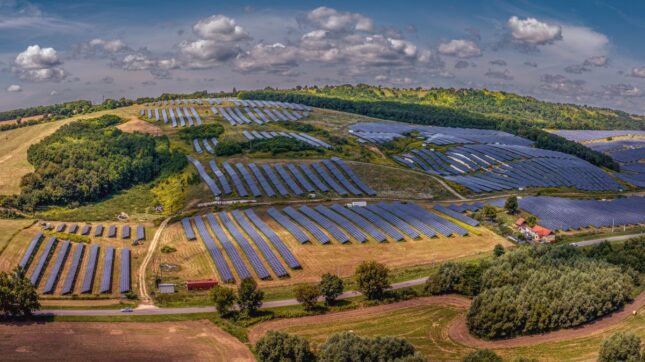

 When senior officials from 32 countries meet in Washington, DC next week for the NATO Summit, deterrence and defense, as well as Ukraine and global partnerships, are at the top of the agenda. As NATO Secretary General Jens Stoltenberg observed at a recent Wilson Center event: “The war in Ukraine demonstrates that our security is not regional, it is global – not least because of the support we know Russia is getting from China and others.”
When senior officials from 32 countries meet in Washington, DC next week for the NATO Summit, deterrence and defense, as well as Ukraine and global partnerships, are at the top of the agenda. As NATO Secretary General Jens Stoltenberg observed at a recent Wilson Center event: “The war in Ukraine demonstrates that our security is not regional, it is global – not least because of the support we know Russia is getting from China and others.”